Featured Events
The Media in a Divided America
March 4, 2025
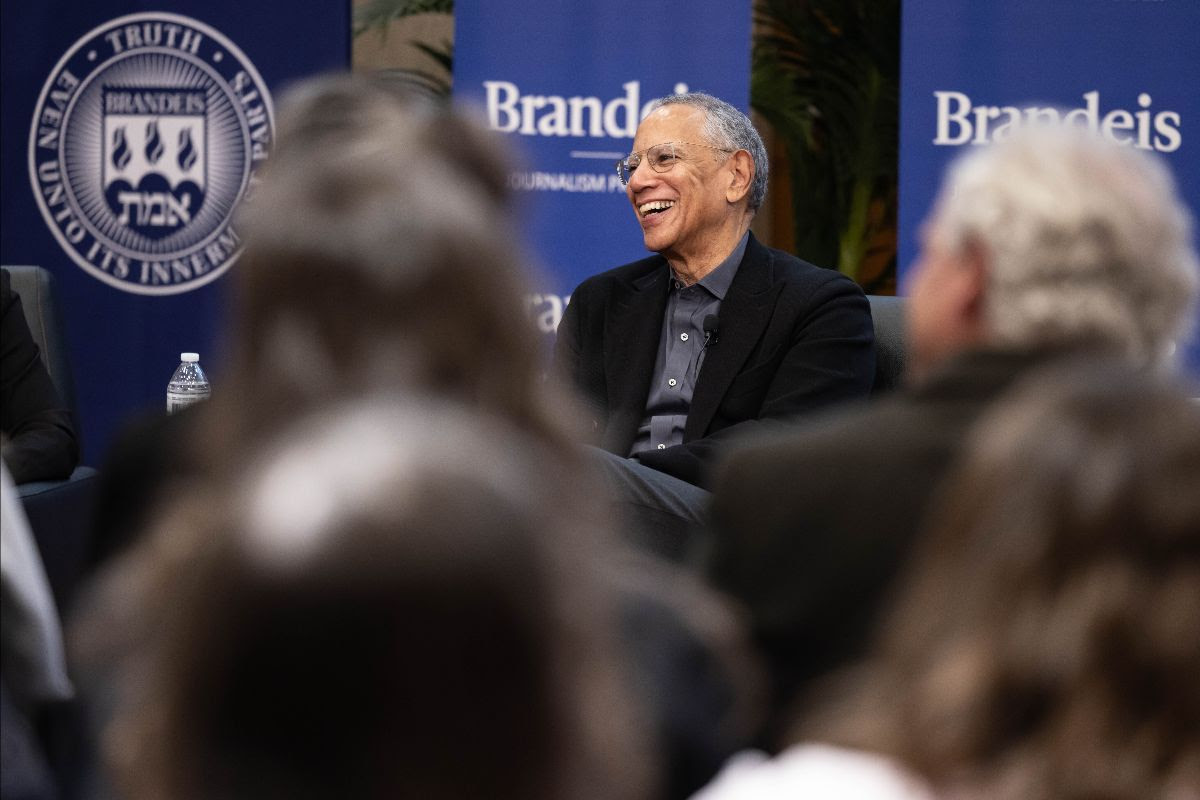
Dean Baquet, former top editor of The New York Times, visited Brandeis University as a guest of the Journalism Program. Speaking to two full houses on March 4, Baquet joined two forums about polarization in the country as part of the fourth annual Elaine Wong Distinguished Lecture Series. The following day, Baquet offered advice and answered questions at an off-the-record discussion with journalism students. To learn more about Baquet's visit to Brandeis, check out the event coverage or watch the recordings.
On the Front Lines: Media, Law and Democracy with David McCraw
September 27, 2024
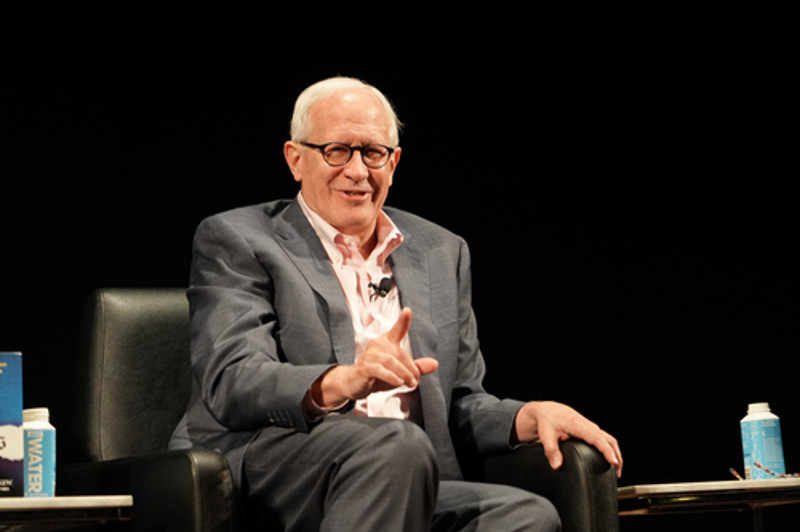
David McCraw, Senior Vice President and Deputy General Counsel for The New York Times, gave the Brandeis community a brief peak behind the curtain of The Times' s legal machinery. McCraw spoke to Neil Swidey's Long-form Journalism class on Sept. 26 in an off-the-record Q&A session. He also joined Professors Neil Swidey and Ann Silvio to discuss the his experiences overseeing security at foreign bureaus, negotiating the release of journalists taken hostage, and defending the paper in court during Brandeis's Alumni College weekend. To learn more about McCraw's visit to campus, check out the event coverage or watch the recording.
Discussion with Adrian Walker and Evan Allen
March 7, 2024
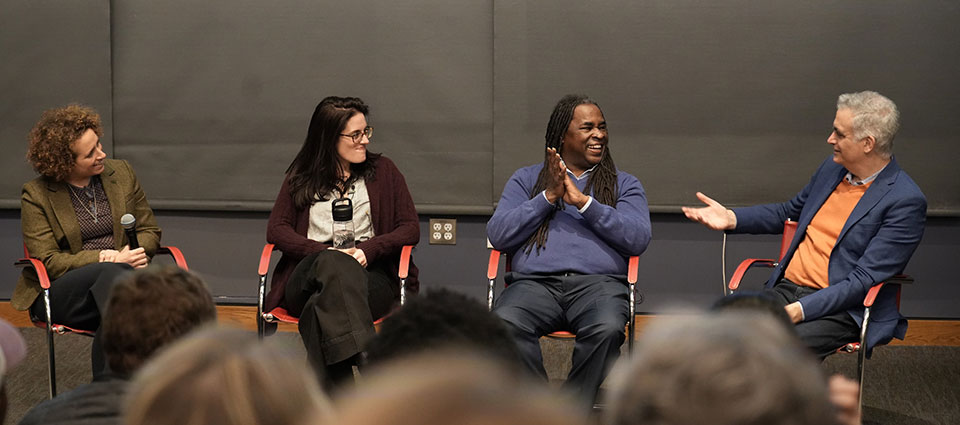
The journalists's behind the Boston Globe's multimedia investigation, "Nightmare in Mission Hill," spoke to Brandeis Journalism students about this new examination of the city-altering Charles Stuart murder case. The Globe's Adrian Walker, associate editor and columist, and Evan Allen, investigative reporter, described their experience rereporting this decades-old crime and how they brought it into the present. Allen was the lead writer for the narrative, and Walker narrated the podcast. To learn more about their visit to campus, check out the full coverage of the event.
Q & A with Judy Woodruff
Oct. 14, 2023
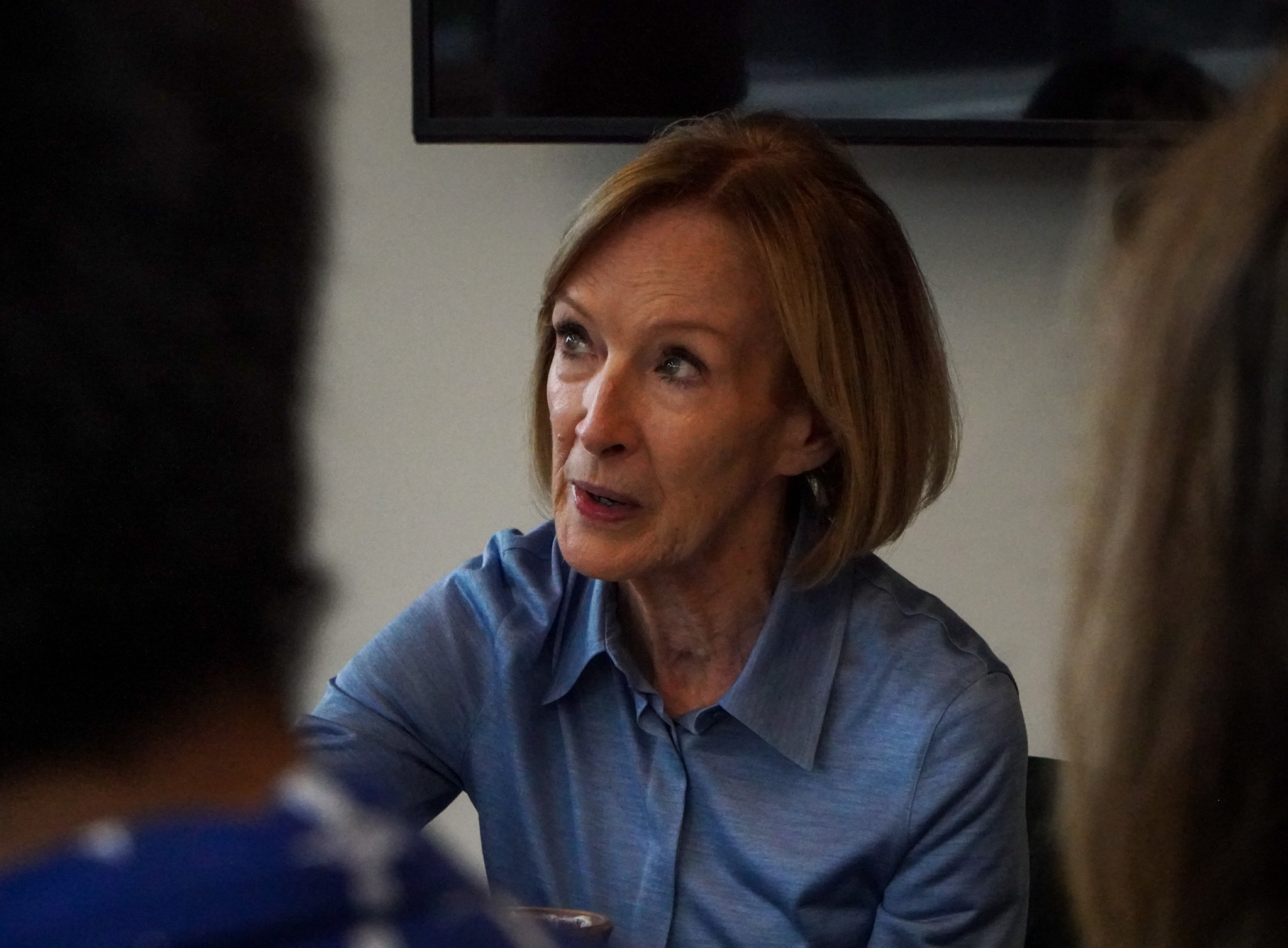
Judy Woodruff, former host of PBS NewsHour, shared the insights she's gleaned from a decades-long career covering the major events of the day. Having begun her career in the 1970s, Woodruff discussed how the industry has changed over the last 50 years and provided political context for current events. She also received the Brandeis National Committee Sachar Award during her visit to campus. For more on her events on campus, check out the full coverage of the event.
Marty Baron Richman Fellowship
March 15-17, 2023
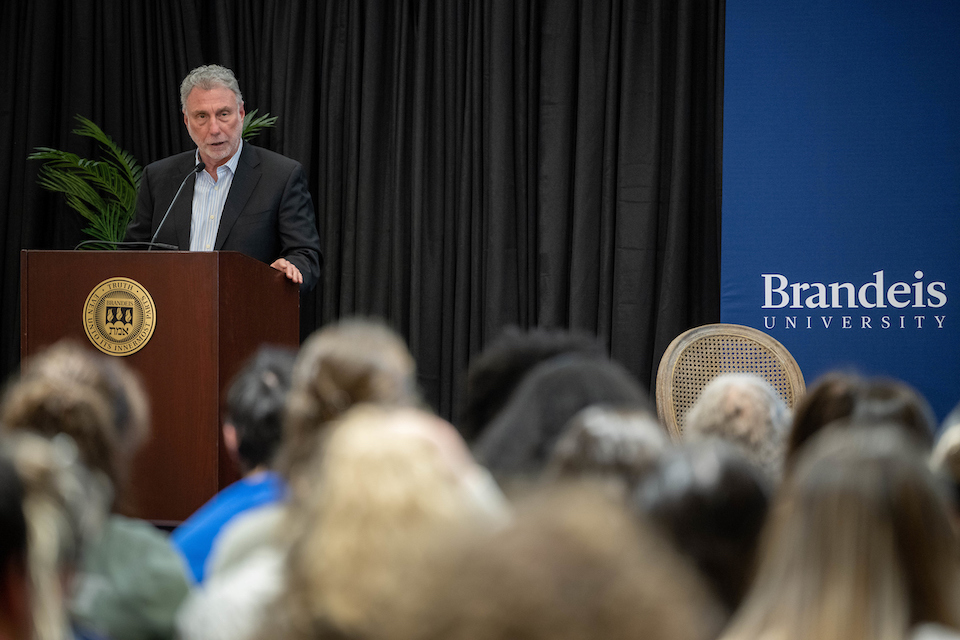
The Brandeis Journalism Program hosted Marty Baron, the retired editor of the Washington Post and a long-time editor at the Boston Globe and the Miami Herald, as Brandeis' 2023 Richman Fellow. While on campus, Baron attended a welcome lunch with Brandeis Journalism faculty, staff, and students; a screening of Spotlight, a biopic detailing the Boston Globe's investigation of the Catholic Church in the early 2000s under his leadership; and a discussion with the Ethics in Journalism course. He wrapped up his visit with a keynote lecture about objectivity in journalism. To read more about Baron's visit to Brandeis, check out the event coverage or watch the keynote recording.
Abortion: Past, Present & Future
Nov. 16, 2022
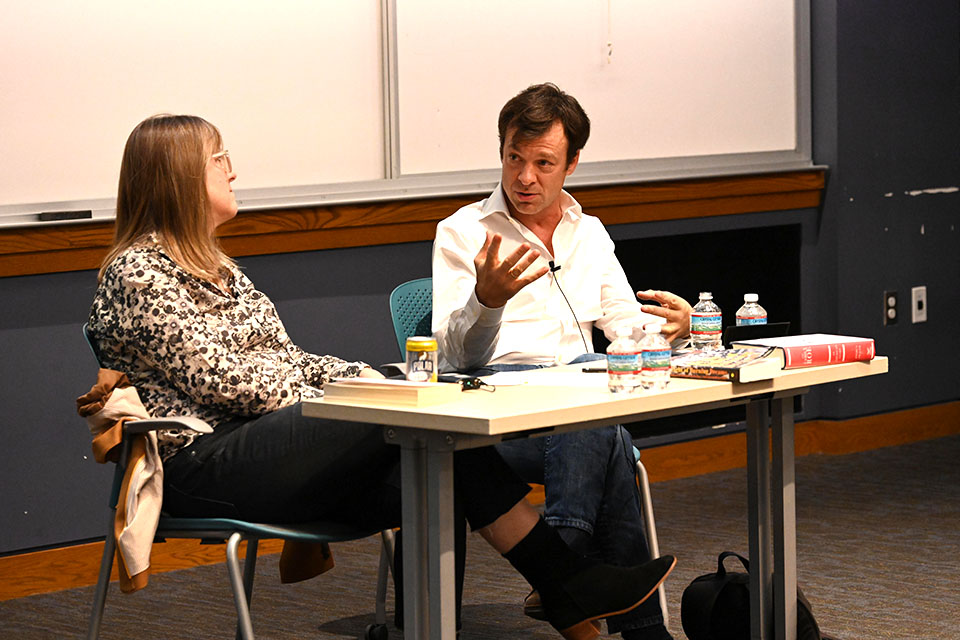
Margaret Talbot, award-winning staff writer for The New Yorker, and Joshua Prager, author of The Family Roe, wrestled with the complex space abortion holds in American culture and politics in front of a live audience of Brandeis faculty, students, and families. Together, they detailed the history of abortion in the country and emphasized the importance of telling the human stories behind the procedure. To learn more, check out the full coverage of the event.
Conversation with Gina McCarthy, Climate Czar
March 8, 2022
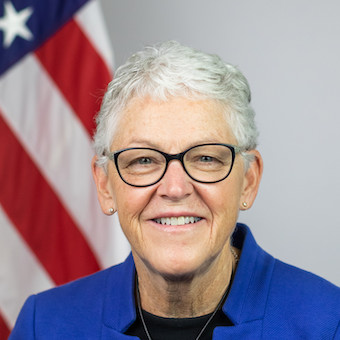 Gina McCarthy, former top national climate official in the federal government, headlined a Brandeis Journalism webinar focused on how to improve communications and coverage of climate change. As the government’s first National Climate Advisor, McCarthy served as President Joe Biden’s chief advisor on domestic climate policy and heads the White House office focused on mobilizing a whole-of-government approach to tackling the climate crisis and securing environmental justice. To learn more, check out the full coverage of the event or watch the recording.
Gina McCarthy, former top national climate official in the federal government, headlined a Brandeis Journalism webinar focused on how to improve communications and coverage of climate change. As the government’s first National Climate Advisor, McCarthy served as President Joe Biden’s chief advisor on domestic climate policy and heads the White House office focused on mobilizing a whole-of-government approach to tackling the climate crisis and securing environmental justice. To learn more, check out the full coverage of the event or watch the recording.
Investigating Innovation: Boston Globe's "Blind Spot" Team
Nov. 15, 2021

On Monday, Nov. 15, the Journalism program hosted the team behind the Boston Globe's series "Blind Spot," which took home this year's Pulitzer Prize for Investigative Reporting. Reporters Evan Allen, Laura Crimaldi and project editor Brendan McCarthy presented in person on the Brandeis campus (with the team's two other reporters, Vernal Coleman and Matt Rocheleau, joining via Zoom). They discussed how they uncovered systemic government failures that led to dangerous — and sometimes deadly — consequences for drivers. To learn more, check out the full coverage of the event or watch the recording.
Science Journalism & the Pandemic
March 3, 2021